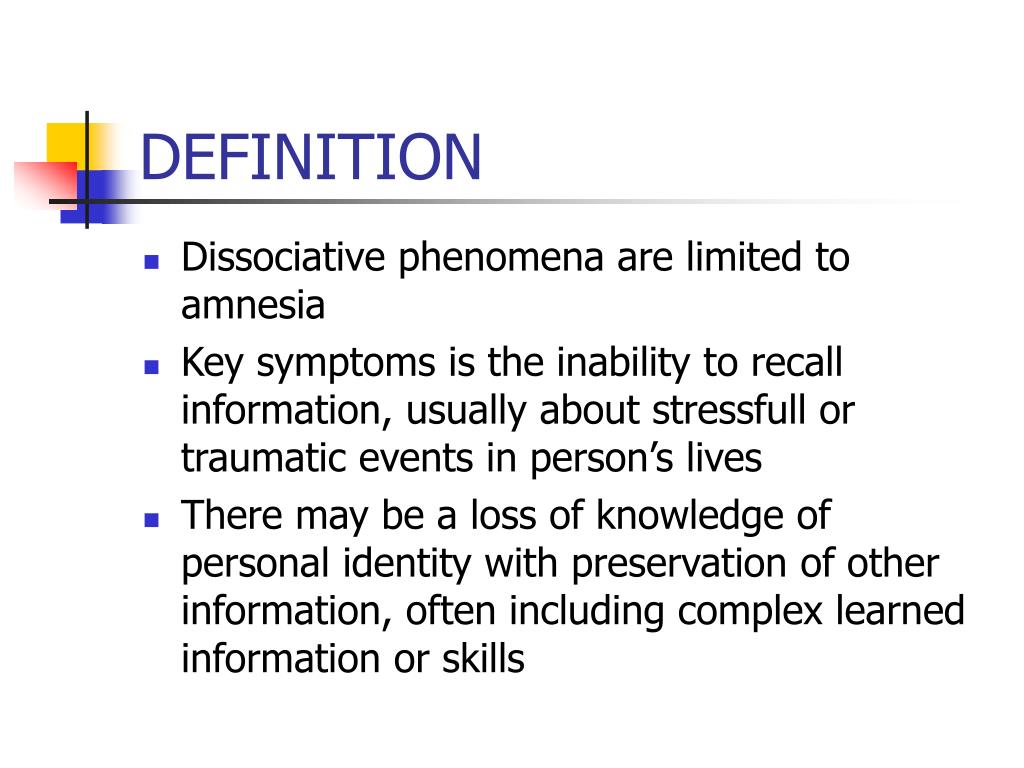
Individuals with Dissociative Amnesia often display high hypnotizability as measured by standardized testing. Individuals with Dissociative Amnesia may also meet the criteria for Conversion Disorder, a Mood Disorder, a Substance-Related Disorder, or Personality Disorder. Other problems that have been reported include sexual dysfunction, impairment in work and interpersonal relationships, self-mutilation, aggressive impulses, and suicidal impulses and acts. Some individuals may report depressive symptoms, anxiety, depersonalization, trance states, analgesia, and spontaneous age regression.

Individuals who exhibit these latter three types of Dissociative Amnesia may ultimately be diagnosed as having a more complex form of Dissociative Disorder (e.g., Dissociative Identity Disorder). The person's loss of memory for certain categories of information, such as all memories relating to one's family or to a particle person.It is defined as the inability to recall events subsequent to a specific time up to and including the present.The person has a failure of recall encompasses the person's entire life.
#LOCALIZED AMNESIA SERIES#
The person can recall some, but not all, of the events during a circumscribed period of time (e.g., a combat veteran can recall only parts of a series of violent combat experiences).The individual fails to recall events that occurred during a circumscribed period of time, usually the first few hours after the event (e.g., the uninjured survivor of a car accident in which a person has been killed may not be able to recall anything that happen from the time of the accident until two days later).This acute form is more likely to occur during wartime or in response to a natural disaster or other form of severe trauma.


Dissociative Amnesia most commonly presents as a retrospectively reported gap or series of gaps in recall for aspects of the individual's life history. The essential feature of Dissociative Amnesia is an inability to recall important personal information. The symptoms cause clinically significant distress or impairment in social, occupational, or other important areas of functioning.The disturbance does not occur exclusively during the course of Dissociative Identity Disorder, Dissociative Fugue, Post traumatic Disorder, Acute stress Disorder, or Somatization Disorder and is not due to the direct physiological effects of a substance (e.g., a drug of abuse, a medication) or a neurological or other general medical condition (e.g., Amnestic Disorder Due to Head Trauma).The predominant disturbance is one or more episodes of inability to recall important personal information, usually of a traumatic or stressful nature, that is too extensive to be explained by ordinary forgetfulness.


 0 kommentar(er)
0 kommentar(er)
